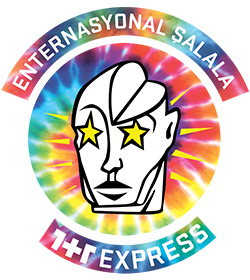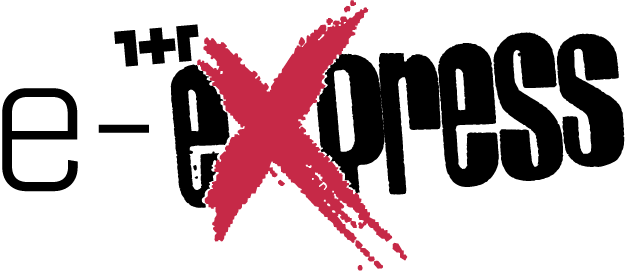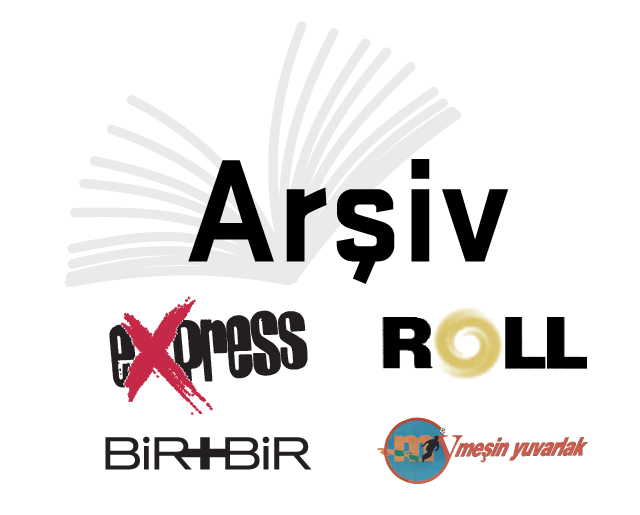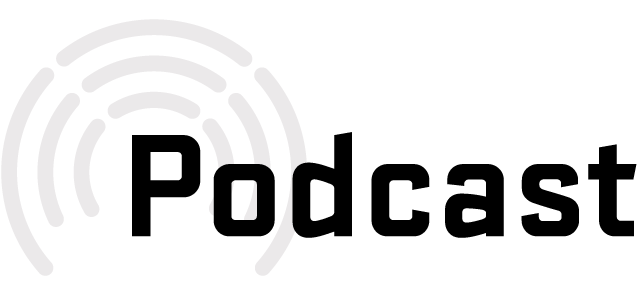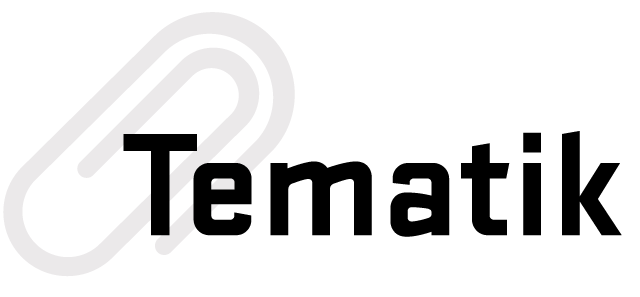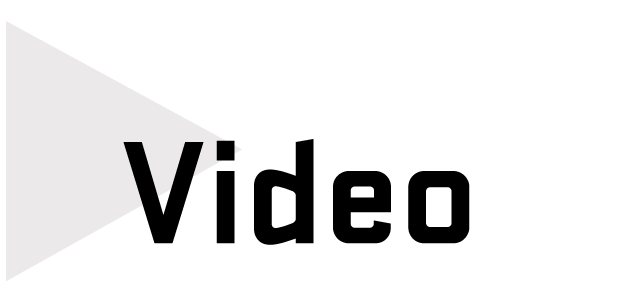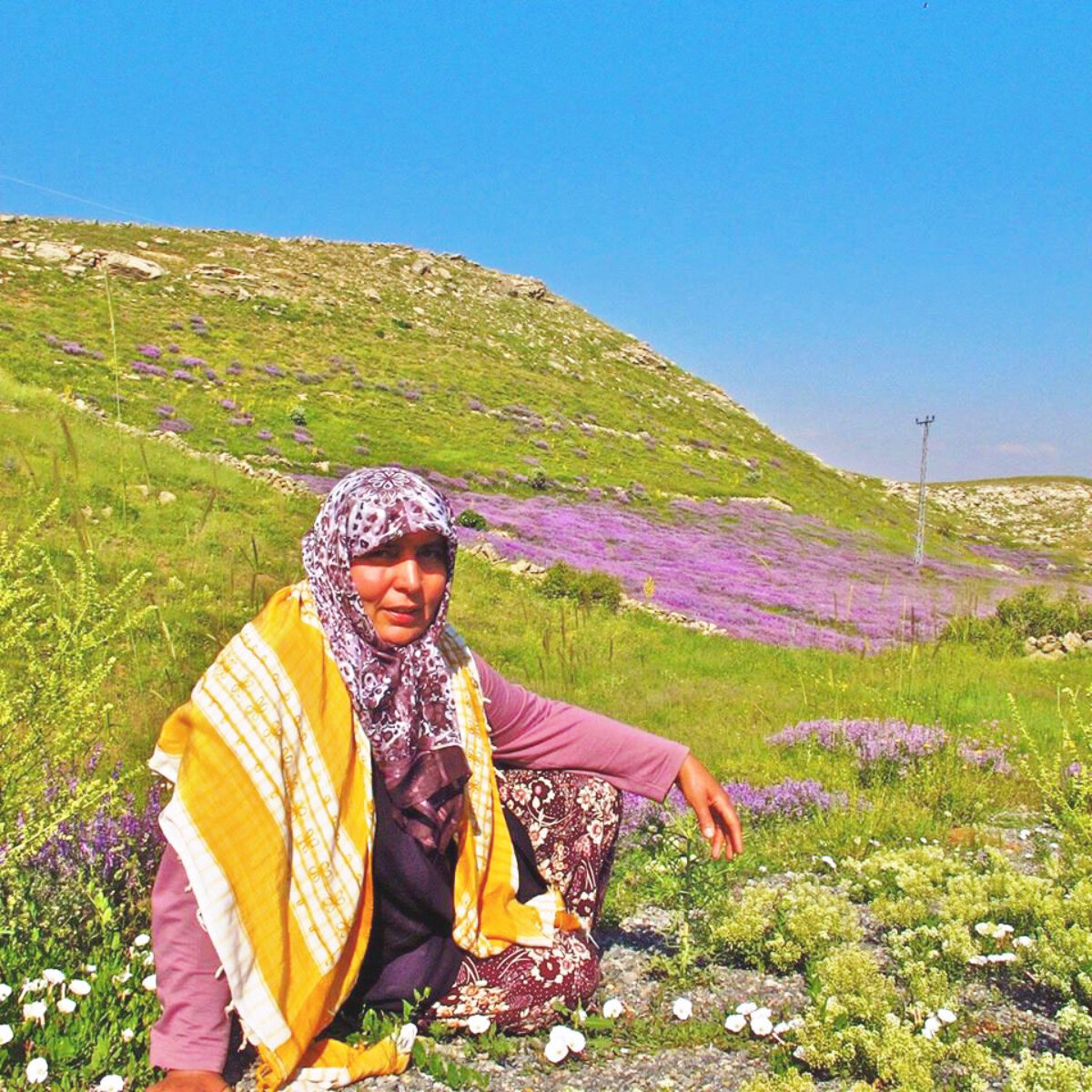When I called you a moment ago you said “I have guests now, let’s talk after I see them off.” Afterwards we learnt that your guests were officials who had come to write you a fine. Who were they, for what did they write a fine?
Pervin Çoban Savran: Our guests were from the Union for the Protection of Farmers’ Property. We are in the forests. Among all institutions that deal with the forests in our region, we normally receive a “grazing scheme” for our goats from the Directorate of Forestry. Two more institutions have come up in recent years. One of them is the Union for the Protection of Farmers’ Property and the other is the Cattle Breeders’ Union. We have nothing to do with farmers’ property, we are in the forests. And the harvest has already been made by now in the fields where they do farming. Still they prohibit our passage from these lands, these lands which we have to cross to take our goats for watering. The guests who were here, they came to write a 3000 TL fine for this reason. I asked them to show me the regulations. They said “this is our legal right”. I told them I wanted to see it in writing. They told me to look it up on the internet. I told them I cannot use the internet that much so I would come over to their offices and receive it from them in written form. We offered them some ayran and politely sent them off.
They are trying to push us away from these beautiful forests which we both protect and carry into the future. Our goats carry out a deep cleansing of the forest by eating weeds, flowers and leaves. They grub the earth with their hooves. Alas, all the dynamite they use for marble pits, quarries and for mining have affected our waterbeds. Our springs and cisterns have dried up.
Do you face any pressure to stop you from living in the forest?
Village headmen come and say to us “either you leave this place or you must pay us some money”. They are still after the money. They are trying to push us away, the ancient people of Sarıkeçililer, they try to drive us off from these beautiful forests which we both protect and carry into the future.
You just mentioned a grazing scheme. What is a grazing scheme?
The omnibus bill of 2012 included a regulation about grazing schemes. This new regulation meant that you can only graze your animals in designated areas. But we demand that our right to nomadism be recognized in the Constitution. Because it is we who protect these mountains, these forests and these valleys, we, the humans, and our goats. “How so?” you might ask. And I ask you: Since how many years has there been a Directorate of Forestry? You cannot act for the forests while sitting in indoor offices. In indoor spaces you don’t even know what is and what is not found in nature. You can only count logs from indoors. The people who are appointed to those offices do not know about nature, they don’t know about the geography, they don’t even know about trees. They have not grown up in this region. The peasants and shepherds of the forest have been driven away from the Taurus Mountains. The system of those who wait for their payday wreaks damage on these mountains. The peasants of the forest know very well the landscape, the kinds of trees, the species, they know the beings who roam the region. But for some reason, the peasants of the forest have been cut off from the forests and the shepherds have been sent away. And this has been done systematically!
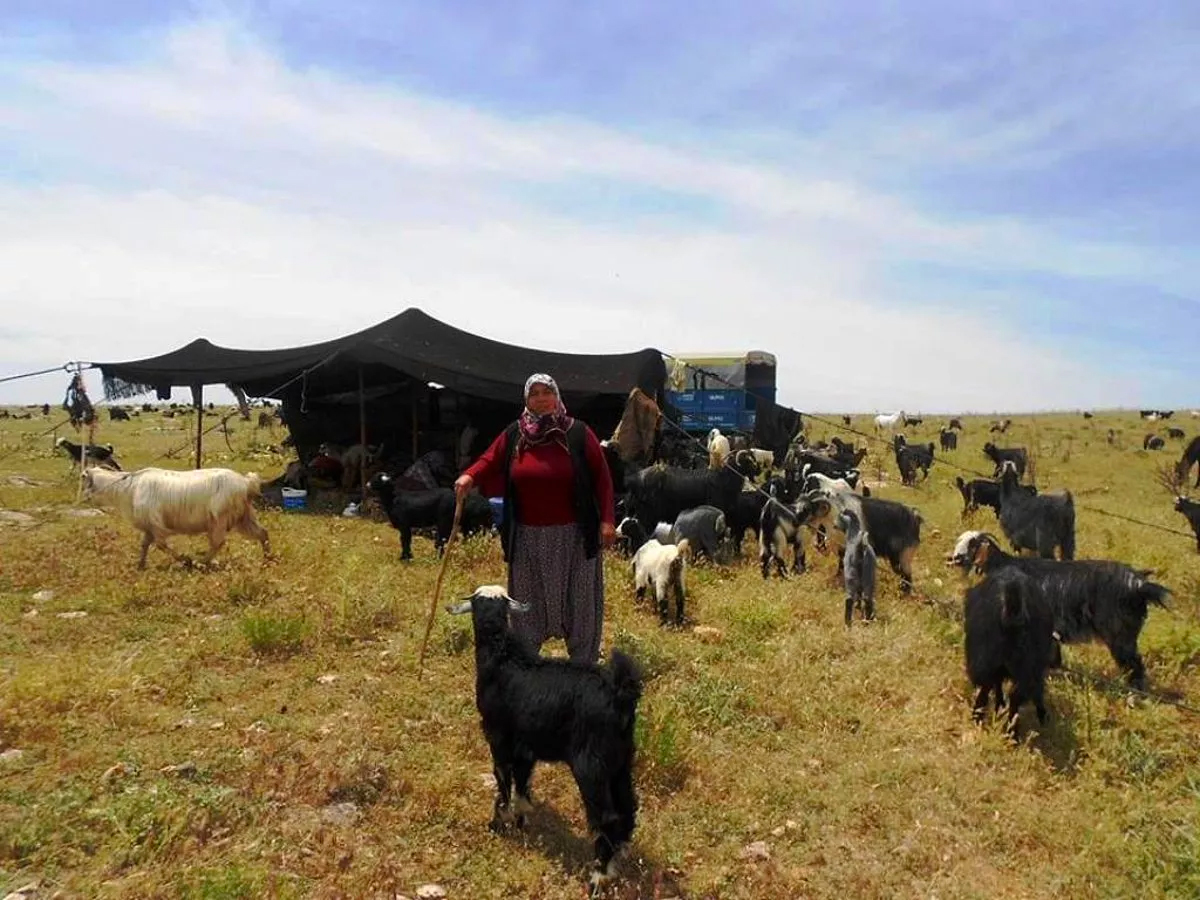
And how did that happen?
Our movement range was restricted with the grazing scheme. In 2015, the Ministry of Agriculture and Forestry mapped the Summer Country and the Winter Country of the Sarıkeçililer with the aim of “preserving the migration routes”. Unfortunately, this was not allowed to be realized. There is an effort to kill off every endeavor, slowly, by pushing people into silence, by wasting their time. But we know that throughout centuries there never was a wildfire in the areas inhabited by the forest shepherds, by the Yörük[i] or by the Sarıkeçili. We know this from history. I dare them to challenge me, to come forward, those who think they have evidence to the contrary. We live in the forest, we make fires in the forest and we protect these forests better than anyone else, these forests which are our home. In a forest where the shepherds and the peasants are driven away, where our lifestyles change, you invite wildfires.
How come?
Indoor animal farms that employ industrial methods lead to climate change and wildfires. We, the nomads, continuously migrate depending on the season, depending on the climate and on our goats, who are our comrades. Our goats carry out a deep cleansing of the forest by eating weeds, flowers, thyme and leaves lying on the forest surface. This is good for the forest. It helps prevent diseases, insect or worm infestations. Moreover, our goats grub the earth with their hooves. Alas, all the dynamite they use for marble pits, quarries and for mining have affected our waterbeds. Our springs and cisterns have dried up. Because they have set their eyes on our water as well, now we have to carry water with trucks. The earth that our goats grub with their hooves and fertilize with their manure, comes to life when she meets with water. Our goats, as they bleat together with their kids, they call on the skies for rain and for abundance. They ask Mother Earth for flowers and weeds. The rains begin when we start to migrate.
When we step on the earth we do this with rage. Do we take consent from the earth? If we had been stepping on Mother Earth with a little more care, with a little more understanding, she would not be spitting trouble on us right now, she would not be sending balls of fire on us.
How does your lifestyle, the culture of nomadism, affect your approach towards nature, the earth and the forest?
Humans have done all kinds of evil to nature. When we step on the earth we do this not with sense but with rage. Do we take consent from the earth? The earth is a life, too. If we had been stepping on Mother Earth with a little more care, with a little more understanding, she would not be spitting trouble on us right now, she would not be sending balls of fire on us. Sometimes for meetings I have to go to cities, to areas of settlement. I look around and see that humans have no idea about the value of water. They act as if water belongs only to them. We, the nomads, are not like that. We always wash our hands by a tree. When we wash our children we pour the water on the bottom of a tree so that the tree can also benefit from the water. The tree also needs water. In those buildings there is such a large usage of water, it is as if they think it all has been given to their command.
You just mentioned that the nomads, the Sarıkeçili people, are being destroyed, that they are forced to adopt a sedentary lifestyle. What is the historical background to this pressure?
As you also know, in the last few years, consumption has accelerated. Because of this, lands for grazing have been rented away as agricultural fields. In some of these areas there is agricultural production. In some other areas that are rented as agricultural fields, tenants receive agricultural subsidies from the state and then just abandon the field. This has meant that the distance that we used to cover walking, the 650-700 kilometers from Mersin to the other edge of the Taurus Mountains, to the border of the provinces of Afyon and Konya, has been reduced to 450-500 kilometers. In winter we live in Mersin, we stay on the coast. Over there is our winter country. We call our country the place where we live in the forests in our woolen tents. Right now our country has been consumed in the wildfires, it has turned to ashes. Because of great neglect. The 15th of July was an official holiday, so everyone had a long weekend and left for vacation. Only a single watchman stayed behind in that area. There was no water in the fire pools. So the fire just grew. Could it have been prevented? Yes, it could have been prevented. We spend the winter in the coastline around Mersin, Silifke. Around mid-April we set out on the road and arrive at the Mid-Taurus after a 1.5 month walk. We spend the summer in the counties of Konya, in the mountains of Çumra, Bozkır, Beyşehir, Seydişehir, Taşkent, Karaman-Ermenek. Until September-October we stay here, in our Summer Country. But now with all those gardens, fields, fruit trees, orchards, vineyards on our route… Sure the people want to produce, some of them mean well. But some of them just fence the fields to receive subsidies from the state, and they block our passage.
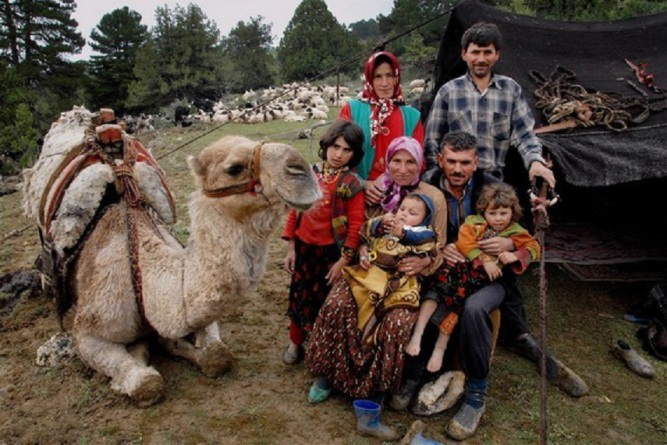
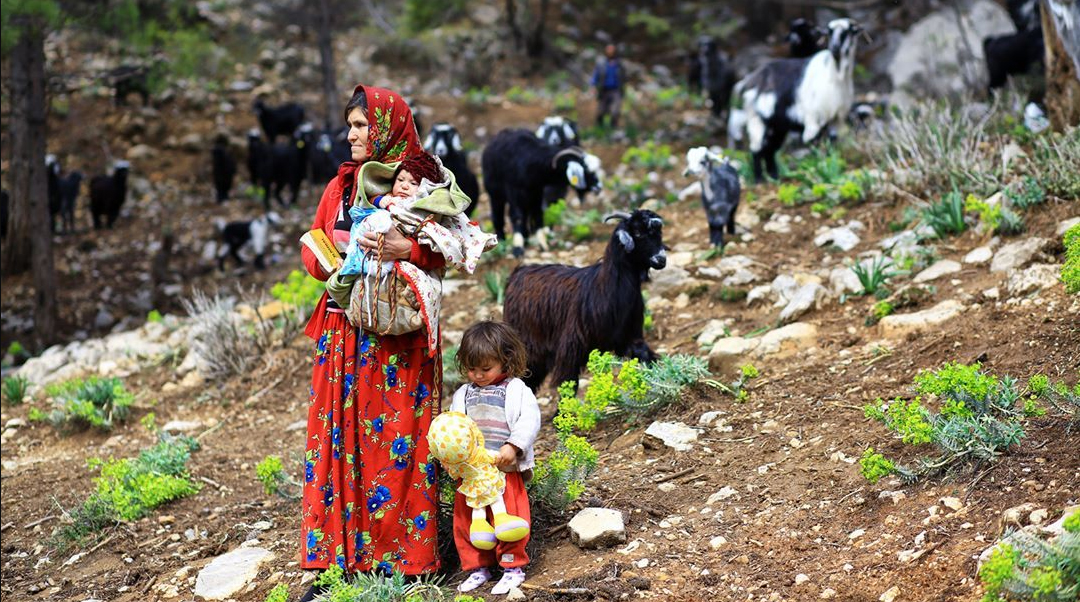
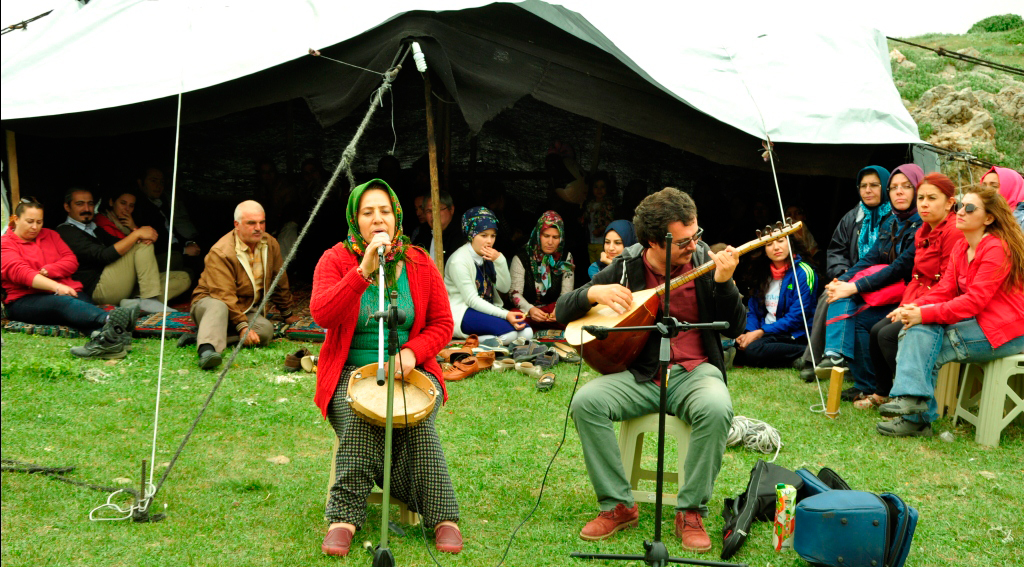
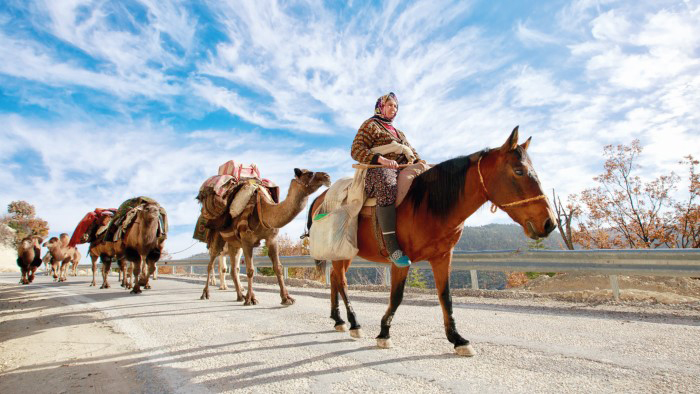
Sarıkeçililer
How do people behave towards you on your migration routes?
We are nomads. We are landless, without property. Wherever we go they treat us differently because we are nomads. We have goats dark as black grapes. People think we have no costs of living, but we do. Lately we have to bring water with trucks, that’s a cost. In some places we have to pay to stay in our countries.
How much do they ask for?
Village headmen open the bargain from 10 thousand liras. In some places the Directorate of Forestry tells us to go and ask for the permission of village headmen. In some places we have to pay money as tribute, protection. Because our Winter Country is getting smaller and smaller, when our female goats, our comrades, are to become mothers we buy them barley, pulp, and that’s our expenditure for feeding. In recent years, they have also invented this “earring” thing. We cannot get on our route unless we put on earrings on our goats.
We, the Sarıkeçili, are the ones who know best the language of nature. We know where the wind will blow from, we know the stars, the sorrow of the sky, we know when the season will change by looking at the moon. Because we live chest to chest, nested with Mother Earth. We are the ones who know best how to listen to the language of nature.
What earring?
The goats have to wear ear tags. That’s the biggest torture. It’s a torture before all else for the goats themselves. Those earrings get caught on the branches of trees. Some goats are wounded to the point of losing their ears. As if that’s not enough they have come up with this vaccine thing. If we are not vaccinated they don’t let us migrate. We pay a lot of money for earrings and vaccines. They founded the Cattle Breeders’ Union, allegedly to support us, but the Union keeps a percentage of the support we are meant to receive from the Ministry. Therefore, we only receive minimal support from the state. And we receive this after a very long time, therefore it is no support, it is an obstacle. That’s part of the plan for finishing us off in a controlled manner. All of our members, all of the Sarıkeçili people say that they wish they would not be given so much support, that they would not be controlled to such an extent. And it does not end there. They keep on writing us fines because we passed from this place, because we stopped at that spot. This is why we are waiting for our legal rights.
What kind of rights?
That we have a tax number for our tents and we pay a grazing tax for our animals. But they don’t accept this. The reality is that we, the Sarıkeçili, are the ones who know best the language of nature. We know where the wind will blow from, we know the stars, the sorrow of the sky, we know when the season will change by looking at the redness and the whiteness around the moon. Because we live chest to chest, nested with Mother Earth. We are the ones who know best how to listen to the language of nature. We have many fears. We do not drink water from pipes and bottles like the people of the cities. We live in nature and we witness how humans are destroying nature, we hear the shrieking voice of nature. Nature is being destroyed at a great pace. With industrial animal farms, with their transport they create an incredible carbon footprint. They use water recklessly. They not only grow corn and clover, they carry it around in trucks… We see the balls of fire with our own eyes. One should not be so careless against Mother Nature. We need her, we need nature, we need this oxygen to survive. Without oxygen, neither money nor riches have meaning. For humanity, for nature, we need this air, we need these rains. We cannot expect beauty and niceness from an environment that we are destroying with our own hands.
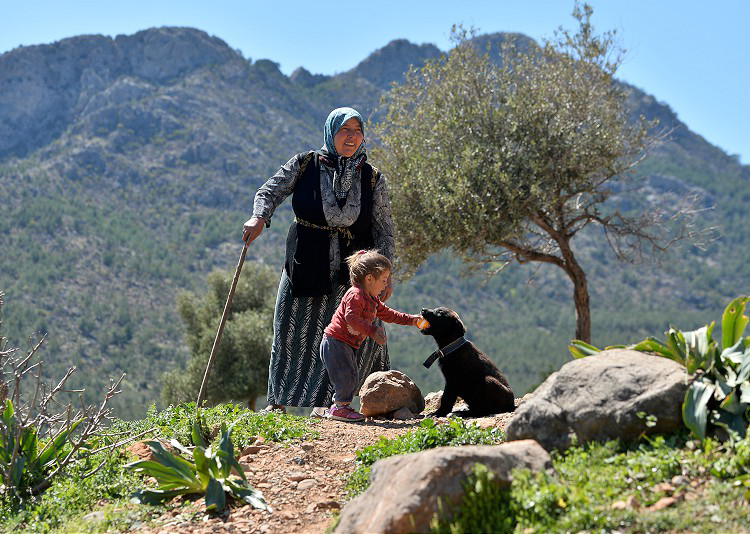
Are there many of your people who choose to settle because of the restrictions of your living space and your migration routes?
Our elders say, “They have put us to the sword throughout history to make us settle down and to bring us under control. We are the survivors of the sword.” I have been the president of the Sarıkçelililer Solidarity Association for 20 years. Official titles do not matter, I don’t like the word “president”. I try to act as a mother. I want to tell you about this period of 20 years. When we camped somewhere, we used to have at least ten tents and hundreds of camels. But in recent years it has become a major crime even to enter the forest and to graze the goats. Many of us have been taken to court and received sentences. Many of us were forced into a permanent settlement, placed in the housing project named “Sarı Houses” in Karaman in the 1980s. Many of us were forced to settle by the hand of the state. Those who could resist have resisted, but in recent years we cannot even find land to make camp. Out of desperation we have had to sell our goats one by one, our goats who are our comrades, and we have to turn to permanent settlement. This is not because we want it. No individual in our community accepts the settled life.
Why?
We cannot live where everyone lives. We do not find taste in the foods that everyone makes. We want to consume what we produce. Everybody has their own habits. There is no limit to the oxygen that we breathe. We listen carefully to what our elders say: “A single camel can carry the Yörük’s load, but forty camels are never enough to carry her joy.” Right now, as I talk to you I look around me. On one side I see oak trees, on another side, miles away in the distance I see a settlement zone with its minarets. On the other side our goats are resting in the shade of trees. In a while we will move for grazing. Our shepherd dogs, who are everything to us, are on watch around the tents, checking on us and on the herd. We do not work by the clock. Maybe we get up at 5 in the morning, but then until 8 in the evening we watch our animals graze, calmly under the breeze. That’s our joy for ourselves. Now they are restricting this. There is daily pressure, the village headmen come and say “you will leave this place if you don’t pay”. The president of the Union for the Protection of Farmers’ Property comes and says, “you have to pay me this money because you passed from this place”. I tell them, “let’s bring an expert to see if we have done any harm” and they say, “no need, just pay.” Based on what do you charge me? This pressure has reduced our number.
We cannot live where everyone lives. We do not find taste in the foods that everyone makes. We want to consume what we produce. Everybody has their own habits. We listen carefully to what our elders say: “A single camel can carry the Yörük’s load, but forty camels are never enough to carry her joy.”
How much is your population right now?
I cannot say for sure, but around two thousand. We have about 160 tents.
The decrease in your population, how does it affect your culture? What do your children face in daily life, how do they deal with these issues?
I will tell you once more about my experience in the last 20 years. We send our children to schools so that they get an education. Unfortunately, our children resist this because in society they are discriminated against for being nomads and Yörük. We tell them that they will receive education in schools, learn Turkish, mathematics, the alphabet etc. But still they choose our tents and our living space. Some of those who are smart go on to study, but still they can’t let go of our way of life. They become foresters or obtain professions that are close to our lifestyle. And in the first opportunity they come back to join the nomadic life. One of the biggest reasons for the reduction in our numbers is the decrease in forest areas and the pressure from human beings. Our youth say “the greatest reality, harmony and excitement of life is found in the mountains”. Even though the people look at us with disdain they know very well that the tastiest milk, cheese, yoghurt and ayran are found here. They know that the tastiest meat is goat meat and that the goat gives the healthiest products. This is because we do not feed them artificial stuff. Our goats feed on a thousand flowers and herbs.
Do you think that nomadism will completely end after a certain time?
We will not disappear. Migration must continue until the end of the world. We are angry at those who call ours “the last migration”.
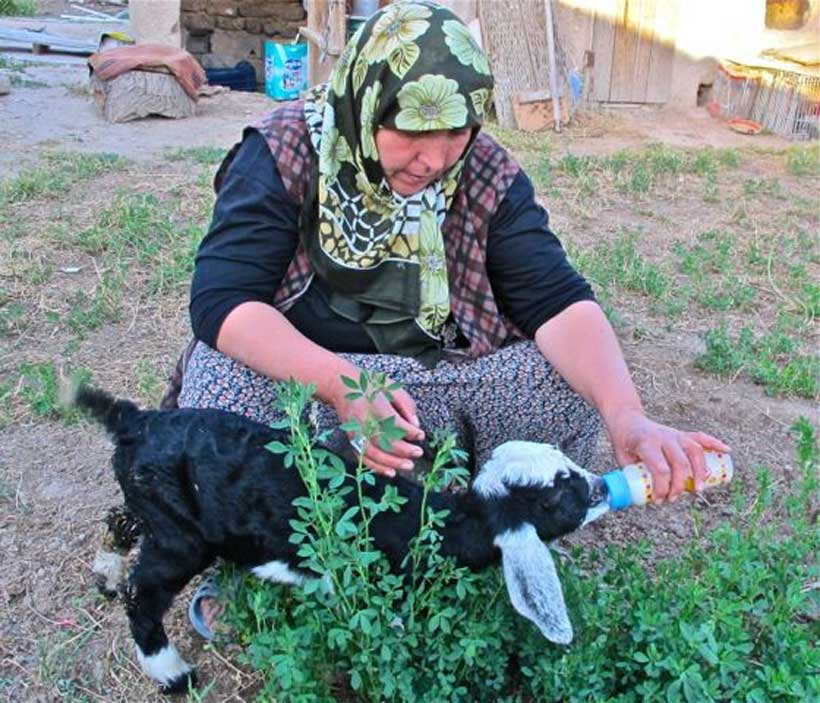
Some time ago Meral Akşener, the President of the Good Party made a statement about the problems and living spaces of the Sarıkeçili. Have you read her statement?
I saw it afterwards, but I don’t understand anything by reading. I am sorry. Since March I have given an immense struggle in Konya-Taşkent for our Summer Country. Villagers and the village headman are denying us the spot that we have been camping on for 15 years. The County governor got involved but it didn’t make a difference. Together with the gendarmerie they made a decision and said to us “for the safety of your own lives do not come here”. Because of the pandemic you cannot reach any governor or anyone anymore. They didn’t agree to give us an appointment. By written demand we made them give us access to this place where we are now. But there is drought here, we find no water. Our animals are hungry, they cry all day. We asked the Forestry for a spot in the Mid-Taurus. We got a grazing plan for around Taşkent. There the mayor intervened to prevent our camp. We resisted it, we created some public opinion around our cause. It is incredible how our problems never end. Every day, every minute something comes up…
Akşener listed her promises for when she comes to power as the following: “We will declare summer and winter countries as well as grazing lands as zones of rural culture. We will set tents for the marketing of local goods around these areas. We will create mobile spaces and organize daily tours. As such we will teach our children and youth about Yörük culture and production mode on the spot. We will map the migration routes, register them and ensure their public safety. We will assign publicly-owned fields and pastures to the communities. We will cover the costs for renting based on a grading system according to their production.” How would you regard such a scheme that seeks to commodify your living space and your way of life into a touristic item?
If they want to talk about our problems, they have to include us in those talks. Maybe she has misunderstood some of the problems, maybe some of her points are correct, but we don’t agree with this. Everybody thinks that they are doing something for us, but they don’t realize how much they hurt us, how they make us sad. We are producers, we want this culture to continue. We never made a demand like “Let’s declare this a touristic zone” or “we want a local market”. And we will never make such demands. A culture is completely destroyed when it is opened for tourism. We never had sympathy for such things. Don’t restrict our living spaces, don’t seize our water, don’t cut our migration routes. We don’t want tourism, we want better understanding. If we have managed to protect our living spaces throughout centuries and made it until today, they should not put pressure on us anymore, they should not mingle with our future. We will protect our living spaces for centuries more. We will contribute to the economy of the country without producing more carbon. Our goats eat and clean their surroundings, they drink the water and return it to nature, they carry seeds from one region to another. Where there are no goats you will find no mushrooms, thyme or tea. In the areas where they don’t let us in, the earth becomes infertile, it gets dry. Our goats grub the soil, they fertilize it and they carry seeds around. For years we have been asking for our kids to continue their education with volunteer teachers in our own living spaces, according to the procedures.
I could see these things happening years ago. Now I can see the disasters that will happen years later. One day these bakeries will not run anymore, we won’t be able to access anything. We must be prepared for that. They don’t teach you these things in school. Nature teaches you these.
What are your demands from the political parties?
We don’t need any favors, it’s enough if they don’t stand in our way. Nobody ever asks us what we think. They don’t care about us because we are beyond political parties. We have a stance that is above their politics. Whatever political party it is that you are talking about, we were here when they were not and we will be here when they will be gone. They will disappear one day. For such projects, we can send a few people to go there and tell them about our situation, and they can listen. If a political party or a state institution really means it, if they have the courage, they should say to us “we want to carry out this work, to discuss this subject, would you take part? We want to listen to you.” I still don’t understand who these people are that they decide for us. They are trying to control us but they never will. It is only nature who can control us. Our goats and the babies of our goats can control us.
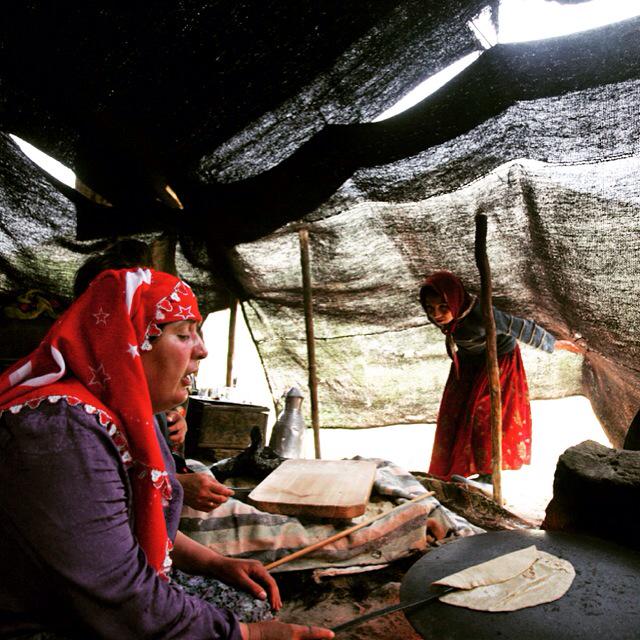
What are the problems that are faced by the Sarıkeçili who convert to settled life?
They cannot eat where there is a crowd, that’s one thing. There are those who have had psychological conditions. In the example of Karaman, there have been people who had to leave their houses in the middle of the night. There are those who have just set tents in front of those yellow housing estates that the state has built. There are so many, which one of them should I tell you about? We are not agricultural laborers, we are not used to working under anybody’s command. In our way of life, it is our goats, our comrades, and the seasons that command us. We migrate depending on the seasons and on our comrades. When our people let go of this lifestyle their behavior changes. We want to be free like our goats, live happily and peacefully like our goats do. Those who convert to settled life, we call them “villagers”. Even if they live in Istanbul or Ankara, the villagers are like sheep in our eyes. They are those who can be controlled. The sheep, excuse me for saying this, you can make them lie down in their own manure. But you can never make the goats do that, never, by no means. The goat wants rocks, the goat wants a clean space. Goats don’t drink the water of others. They smell what is around them, they only eat what they have picked. Those who have settled are like sheep in our eyes. They are doomed to be herded, they are controllable. We help nature live by living in it. In our living space every component of nature has a right to live. The wolf, the jackal, the snake, the scorpion, all those creatures that humans are scared of, we know that they have a right to live. Trees, bugs, stones and rocks that mean nothing to humans, the soil, our gravestones and pit stones that are sacred to us… These are our greatest property, they are our treasure. We live by respecting them.
In time the relationship of humans with nature has changed and this has started to threaten the environment. It is clear that the climate crisis which we are going through right now is a result of this. What do you think should be done?
I deduce the first lesson from myself. If I apply what I have learnt from my ancestors, I can help the next generation apply them, too. We need to reconfigure our consumption habits, immediately. We need to cut them by half. Each individual has responsibility. I always say, I wish the wheel was not invented so that these roads would not be built. If these roads had not been built I would be able to go anywhere with my goats, with my comrades. The wheel was invented, then these roads were built. Technology has been invented and it brings the end of living things. I am a part of this process because right now I am talking to you on a mobile phone. We need to cut these habits by half. If we do not, then we are inviting disasters. I don’t look for culprits, I put the blame on myself. If I am a human being, I must be the voice of all living things, I must speak the thoughts of all living things. I must be able to understand a flame of fire so that I can understand my human existence. When I sit by a river, what does the flow of the river tell me? Does it speak of sorrow, does it speak of the disasters that are looming and am I unable to comprehend? Then I am not a human being. If the flow of the river tells me “I am leaving, I am off, we will not see each other next year” and I cannot understand this, I must question my humanity. Humans need to understand these things and they need to set a direction for themselves. We must reconsider everything, from the car we drive to the energy we use. Maybe we won’t be able to stop certain things but we should be able to say that we tried. In 2011 I said “I will not give up my rivers or my goats”. Why did I say that? Because I knew what would happen. I could see these things happening years ago. Now I can see the disasters that will happen years later. One day these bakeries will not run anymore, we won’t be able to access anything. We must be prepared for that. They don’t teach you these things in school. Nature teaches you these, your living space teaches you these.
I had walked for 43 days and arrived in Ankara. I was very disappointed by the people of the capital. They could have created a human chain to come and support us. My camel named Rain was pregnant. I sat down to talk to my camels. Rain told me, “Mama, let’s go to our living spaces. In the city there is only destruction. What they call here the ‘system’ will devour us.”
Speaking of 2011, that year in April you walked all the way to Ankara. Your march was blocked in Gölbaşı, to the south of the capital, by the police, and your entry to Ankara was prevented. Why did you stop the “Great March of Anatolia” which you carried out to protest the Law, then under discussion, for the Protection of Nature and Biodiversity and to communicate the demands of your community to the capital? I am asking this because here and there I hear discussions about why you stopped this march just a few days before the elections in June 2011.
I had set off from Mersin/Bozyazı. I had walked for 43 days and arrived in Ankara. Before anything else I was very disappointed by the people of the capital. They could have created a human chain to come and support us. My Rain, my camel named Rain was pregnant. She had walked for kilometers. We arrived there and people brought us bread. I am not hungry, why do you bring me bread? (she cries) Why do you bring me flowers? If you are human, come and ask me, for whom did I walk all this way? I looked and looked and looked at them. “They will bring me food and I will eat it. Then I am not human.” I sat down to talk to my camels. Rain told me “Mama, let’s go to our living spaces. In the city there is only what is ready-made, only destruction. What they call here the ‘system’ will devour us.” (she cries) That’s why I am upset with Ankara. They shouldn’t have done this to us.
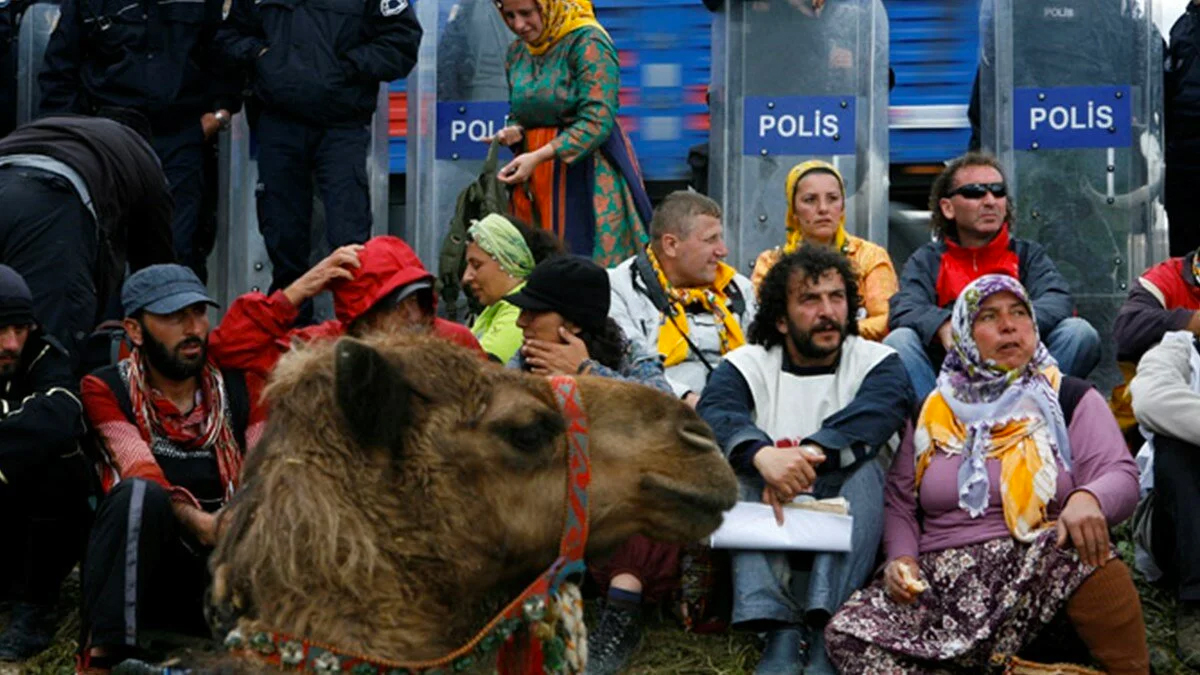
What could the people have done for you in Ankara?
Couldn’t they have walked with us? Couldn’t they have formed a human chain just for one weekend? Years ago I tried to make my voice heard as a woman and a mother, someone who can read and understand what is coming. I didn’t go to Ankara to present my project to the President. I went there so that our voices would be heard and echoed. All my decisions are made by my comrades, my goats and my camels. I told this to the youth who was there with us, I said “I must ask my camels, they know what to do.” I considered the situation after staying there in Gölbaşı for 15 days. I didn’t go there because I was hungry or thirsty, nor did I go there because I was looking for applause. Nobody understood the language of my heart or the condition of my spirit. There was this guy, Numan Kurtulmuş, from Has Parti. He came, he talked back and forth and then he left. After a short while he went and allied himself to the government.
Those who read this interview will rightly ask: from where comes all this wisdom that she has?
I have no wisdom. I will be happy if I have learnt the first letter of wisdom. I study nature. I went to primary school for two years. I study nature and my education will continue as long as I live. The gates of public institutions have taught me how you need to talk with somebody whose way of life is different from yours. Hardships taught me before all else. Fines, penalties, pressures… All the problems we had with the gendarmerie, with villagers, with village headmen, with the Directorate of Forestry… Our story is much too long to be exhausted by words. We were raised by these bitter realities. I owe a lot to nature which was my field of education. If I know how to listen, if I can understand, nature will keep on raising me. My graduation is when I will end up in the arms of Mother Earth. I know that I have graduated when not cement but rocks and stones of nature cover me, when they turn to soil, when the soil turns to herbs and my goats eat those herbs.
We are not interested in religion or language or race or color. We have one language, one nation, one religion and that is nature. Sometimes I blow like thunder, sometimes I am soil, I ask others to step on me. Those who disregard my labour are nothing to me. Those who discriminate based on religions, races and languages will find the mountains standing against them.
In Turkey the dominant political discourse is nationalism. Therefore, there is a lot of talk about being “local and national”. There is a lot of reference to the historical roots of the Turkish people and their culture of nomadism. With such a government in power, how do you regard the pressure towards your people?
We are oppressed by a government that is not nationalist but is only after its own interest. And we are not interested in religion or language or race or color. We have one language, one nation, one religion and that is nature. The language of nature is my language, the nation of nature is my nation, the color of nature is my color. Sometimes I blow like thunder, sometimes I roar like a lion, and sometimes I am soil and I ask others to step on me. But when there are those who let nature be destroyed like it is these days, then a rage grows in me that is unknown even to me. And if you ask why, those who spurn my values have no value for me. Those who disregard my labour are nothing to me. Those who commit injustices, those who discriminate based on those lately invented religions, races and languages will find the Taurus, the mountains standing against them.
You just said that you could see these things happening years ago, and that you can see the disasters that will happen years later. Do you have no hope for the future? Every baby goat that is born onto this earth gives us hope. It wants to suck, to stand on its feet and to walk. Every baby that is born gives us hope. Each baby says “I will grow up, I will become conscious and I will reshape this order.” Every seed that bursts is a plant on this earth, it raises our spirits in our living spaces. The sunset is not the end of the world. Even if it is limited, the beauties of life should find a place for themselves in a corner in our mind. By the way, I am running low on battery. But you owe us one. If you come to the Taurus you have not just a tent but a country here. This country has no borders and it is open to all of humanity.
Originally published here in Turkish on 08.08.2021
[i] Translator’s Note: “Yörük” is the generic name given to the nomadic populations living in the Taurus Mountains. The word comes from the Turkish root-word “yürü” for “to walk”. “Sarıkeçililer” literally means “those with blonde goats”.
